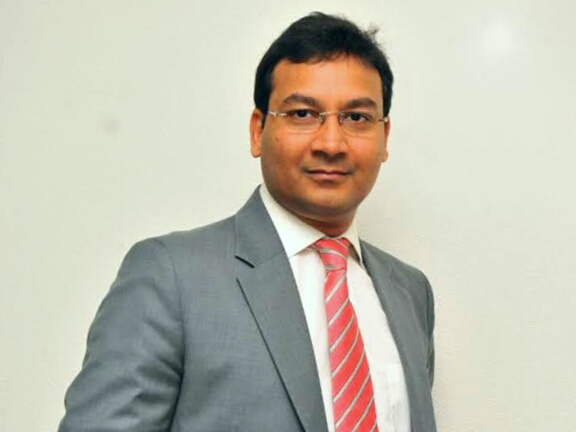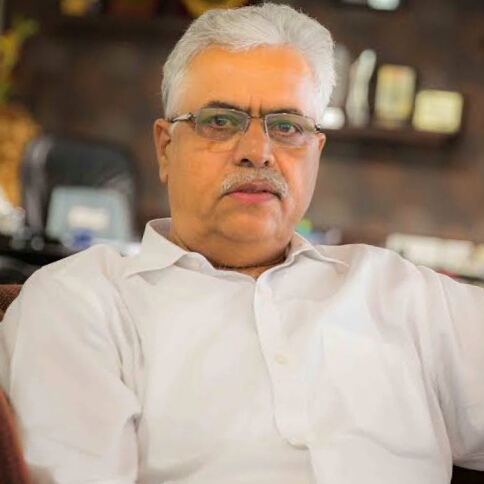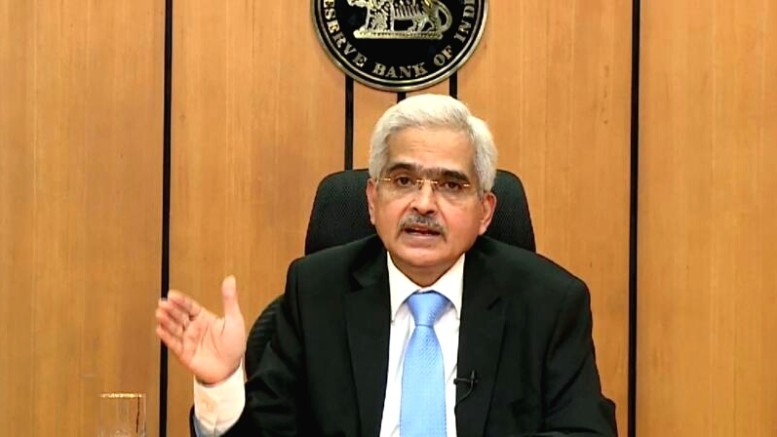MUMBAI, 10 FEBRUARY, 2022 (GPN): Today, RBI in its Monetary Policy Committee press conference made certain key announcements on e-RUPI and NACH Mandate.As the RBI proposed to increase the cap of e-RUPI vouchers from the current Rs 10000 to Rs 1 lakh per voucher and allowed use of e-RUPI voucher multiple times until the amount of the voucher is completely redeemed.
Reserve Bank of India’s Monetary Policy Committee has decided to keep the repo rate unchanged at 4% and maintain accommodative stance as long as necessary to revive and sustain growth on a durable basis and continue to mitigate the impact of COVID-19 on economy and keep inflation within the target. Reverse repo rate also remains unchanged at 3.35%, according to Monetary Policy Statement of February 10th, 2022.
Here are the reactions from the category leaders who spokein response to the MPC’s decision to continue its accommodative stance.

Ankit Bhatnagar, Head of Product, Mswipe
Ankit Bhatnagar, Head of Product, Mswipe said “RBI’s decision of increasing the cap on e-RUPI vouchers to Rs. 1 lakh from Rs.10,000 will further democratize digital payments and will definitely help increase digital payment acceptance in Tier 2 and 6 in 2022. Unlike other digital payment modes, beneficiaries need not have a bank account for e-RUPI services and hence RBI’s proposal will further provide enhanced flexibility, transparency and ease to customers while allowing them to use a single voucher multiple times. At Mswipe, we believe that the increase in cap on e-RUPI will see rise in e-RUPI transactions across its 5.25 lakh terminal and 1 million QR merchants. Besides, increasing NACH Mandate Limit for TReDS Settlements from INR 1 crore at present to INR 3 crore is a welcome move. This will pave the way to help bridge the current MSME credit gap, reduce processing time and ease the financing needs of MSMEs.”

Sachin Agrawal, COO & Co-founder, Bizongo
Sachin Agrawal, COO & Co-founder, Bizongo, said“Financial inclusion and technological transformation of MSMEs is now a priority. As of Q1 2020, MSMEs faced a credit gap of ₹16 lakh cores. In May 2020, when the repo rate was reduced to historic lows, India was just starting to confront the challenges of the pandemic era. In 2022, the primary challenges facing the Government and RBI, are that of uneven growth and inflation. This combination, if untamed, can lead to a double-whammy for MSMEs, especially for MSMEs producing price-sensitive products such as textiles.
Global trade in 2021-22 was defined by fluctuating costs of commodities, materials, and logistics. In India, MSMEs had to confront the rising costs of inputs, and also ensure consistent demand for their products. This resulted in the inability of MSMEs to pass on these rising input costs. As part of the Budget, the Government has extended the term of the ECLGS with an additional corpus of ₹50,000 crores, and capped the surcharge from LTCG at 15%. More importantly, MSMEs are now permitted to use surety bonds, which has lowered barriers to access credit.
In this context, we welcome the RBI’s decision to maintain an accommodative stance with regards to the repo rate. A lower interest rate on loans will not only will it mean cheaper access to credit for MSMEs, it will also allow consumers to make larger purchases. These initiatives will enable MSMEs to invest their working capital for business requirements and growth, and not bridge credit deficits.”

Mr. Mandar Agashe, MD, Founder & Vice-Chairman of Sarvatra Technologies ltd.
RBI decision to increase mandate limit from Rs 1 crore to Rs 3 crore for trade credit to MSMEs, would provide sufficient funds for MSMEs to strengthen their business activities and to become more participative in the trade and manufacturing.
The RBI’s decision to announce limit for inflows under the Voluntary Retention Scheme has been hiked to Rs 2.5 lakh crore from Rs 1.5 lakh crore. This will provide additional sources of capital for domestic debt markets, including government securities.
It is highly encouraging to note that India has a high foreign exchange reserve and moderate Current Account Deficit, as announced by RBI. The cap increase of Foreign Portfolio Investment (FPI) voluntary retention route to Rs 2.5 lakh crore will bolster the investments within the economy.

Mr. Sandeep Runwal – President, NAREDCO Maharashtra and Managing Director, Runwal Group
Mr. Sandeep Runwal – President, NAREDCO Maharashtra and Managing Director, Runwal Group, announced his comments on the RBI policy today.
“In view of inflationary concerns, the Reserve Bank of India (RBI) has continued to maintain the status quo on key policy rates. It has taken a proactive stance to ensure liquidity. The MPC also maintained that the ‘accommodative’ stance will continue as long as needed. This will provide the required fuel for the growth of the economy along with the real estate industry, which is allied with several other sectors. As the industry is recovering from the impact of the 3rd wave of Covid, it is important to support growth and spending. By keeping the interest rates unchanged, RBI has clearly indicated that it is looking for sustainable growth and boosting consumer sentiments,”

Mr. Ram Raheja, Director, S Raheja Realty.
Mr. Ram Raheja, Director at S Raheja Realty Quote on the RBI Monetary Policy.
“After keeping the repo rate and reverse repo rate at a record low of 4.00% and 3:35% for nearly two; RBI was expected to keep it unchanged till mid-2022. The economy is recovering, and this move ensures sustainable growth would continue to be the focus. Alongside this, the pandemic and lockdown continue to be a hopeful prospect for the real estate sector given it is a safe-haven and tangible asset at the time of crisis. A low home loan interest rate regime has been greatly instrumental in further stimulating India’s real estate sector eventually increasing investment and home-buying in the last two years. The coming quarter continues to remain optimistic for most of the sector ultimately reflecting in the S&P BSE realty index.”

Ramesh Nair, CEO, India & Managing Director, Market Development, Asia at Colliers
Ramesh Nair, CEO, India & Managing Director, Market Development, Asia at Colliers.

Amit Goyal, CEO, India Sotheby’s International Realty
Amit Goyal, CEO, India Sotheby’s International Realty
RBI Decision to maintain the status quo on policy rates is good news for home buyers. The historically low home loan interest rates will continue for some more time and keep the mood buoyant. The other welcome news is that the business outlook remains optimistic and real GDP is projected at 7.8% for next fiscal by the governor.

Suren Goyal, Partner, RPS Group
The continuation of accommodative policy by RBI augurs well for the real estate sector. It is likely to boost demand and we hope the accommodative stance will continue for the next year or so.

Mr R K Arora, Chairman, Supertech Ltd.
We welcome the RBI stance to keep the repo rates unchanged at 4% and reverse repo rate at 3.35% for the tenth consecutive time. The unchanged repo rates will help in maintaining the low interest rate regime and this works well for home buyers planning to buy homes with help of home loans. Ends


Be the first to comment on "Perspective by Real Estate, Fintech and B2B SaaS Ecommerce and Supply Chain companies"